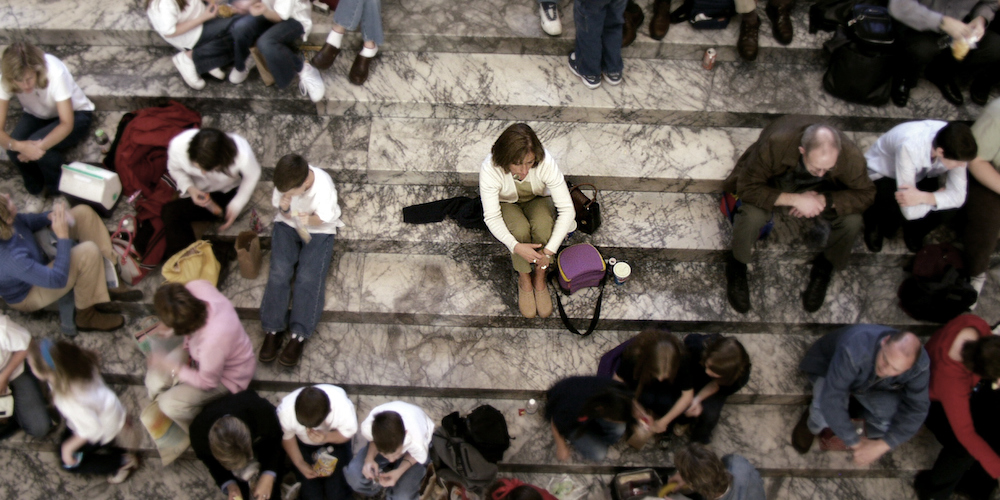Once a nation renowned for its strict traditions of family life, South Korea has become the land of the loner.
In a striking image by Korean photographer Nina Ahn, a solitary figure stands by a window, street lights glimmering around her. Another shows a woman in her 20s sitting alone on a guardrail beside an empty highway in Seoul.
The photographs are intended to capture the loneliness of South Korea’s youth – specifically a subculture referred to as “honjok,” combining the words “hon” (alone) and “jok” (tribe).
The term is often used to describe a generation that embraces solitude and independence, reflecting the country’s growing number of single-person households and changing attitudes towards romance, marriage and family.
There were over 5 million single-person households in South Korea as of 2016, accounting for almost 28% of the total number of households.
From one-person apartments to restaurants catering to unaccompanied diners, Korean society is increasingly geared toward young singles.
A growing middle class coupled with government efforts to promote family planning, has contributed to a dramatic drop in the country’s fertility rate – from 6.1 births per woman in 1960 to just 1.2 in 2015, according to World Bank data.
Women, in particular, are moving away from traditional notions of family and the perceived burden of raising children.
The growth of individualism can be a source of contentment, according to Jang Jae Young, manager of a website dedicated to the single lifestyle, honjok.me.
“Our parents’ generation was busy putting bread on the table,” he said. “They had to sacrifice themselves to feed their families and contribute to the economy.
“But now there is a stronger desire for self-realisation and happiness, even if that means being alone.”
Although Ahn’s photographs portray a palpable loneliness, she believes that her contemporaries are more willing to enrich their lives through experiences like travel.
“In our parents’ generation, people knew that after working hard and saving up for certain number of years, they would be able to buy a house for their family,” she said.
“But we came to a realisation that we’ll never be able to own anything like that, even if we work for our entire lives.
“(My peers) know that there is no happily-ever-after, and they are responding to life in a wiser way. Our priorities in life have changed.”







